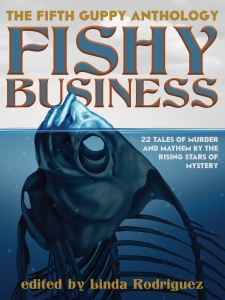 I don’t think I can go negative in public. In these posts, I always want to be positive, encouraging and supportive of my fellow writers. So, I hate to be critical. I know how hard writing is. Plus, in this case, no one is asking for my feedback. But here it is, anyway.
I don’t think I can go negative in public. In these posts, I always want to be positive, encouraging and supportive of my fellow writers. So, I hate to be critical. I know how hard writing is. Plus, in this case, no one is asking for my feedback. But here it is, anyway.
I saw a one-woman show a few days ago. I’ve seen many one-women or one-man shows over the years and most of them were outstanding. Even those slightly less stellar still left me envious of the quality of writing and the courage to perform them. But this last one, well . . .
Basically the show was a series of events and incidents from the author’s life strung together. Other than chronology, there was no organizing principle. There was no overall theme tying them together. She made a stab at presenting a thesis at the beginning and the end, but the part in between didn’t flow organically from the ostensible motif she attempted to develop. They were just, you know, anecdotes. I won’t give specifics. I would never in a million years hurt this woman’s feelings. She performed well, the accompanying graphics and music were spot on. But, let’s say you and your friends and family are all sitting around after a nice meal. One person tells a story about how a few days ago he lost his keys! But, guess what, after some searching, his found them. Then everybody else chimes in with stories about things they lost and found. It’s a fun way to bond over shared glitches in life. You care because you already care about these people. But in the end, the response is “so what?’ Is there a point? No. Do the stories have impact? are they memorable? do we learn anything? No. My first writing teacher, in fact, called these “so what? stories.”
The entire one-woman show was a string of these “so what?” anecdotes. Amusing, self-deprecating, with lots of concrete details, but there was no insight, no growth of character, no struggle, and thus no chance of a satisfying resolution. This woman put a lot of work into this performance. But it fell flat. Sad. Here’s the thing, though. It was a clear demonstration of what I must guard against in my own work. There has to be a reason for the reader to care, to keep reading, to stay engaged, to care about the characters and what happens to them. I learn about my craft in many ways. I’m grateful for all of them, even this one. It’s a reminder of what I must not do. A reminder to dig deeper, to take risks, to put it out there. It was an object lesson in one of the reasons a piece of written work might fail.
Usually we don’t get to see the failures in the work of others. Editors and other gate-keepers stop them from being published. We might see them in a critique group or workshop. But my task is to spot them in my own work. Then, fix ’em or toss ’em.
Okay. I went negative. I hope I don’t have to do it again.






I appreciate your post, because it shows me something that I need to take a closer look at too. Thank you!
LikeLiked by 1 person
Thanks, Trisha. We all have our blind spots when reading our own work. Thank heavens for critique partners. And thanks for reading and commenting. Lida
LikeLiked by 1 person
And now I understand why you didn’t say more about the play!
________________________________
LikeLike
Indeed! Lida
LikeLike